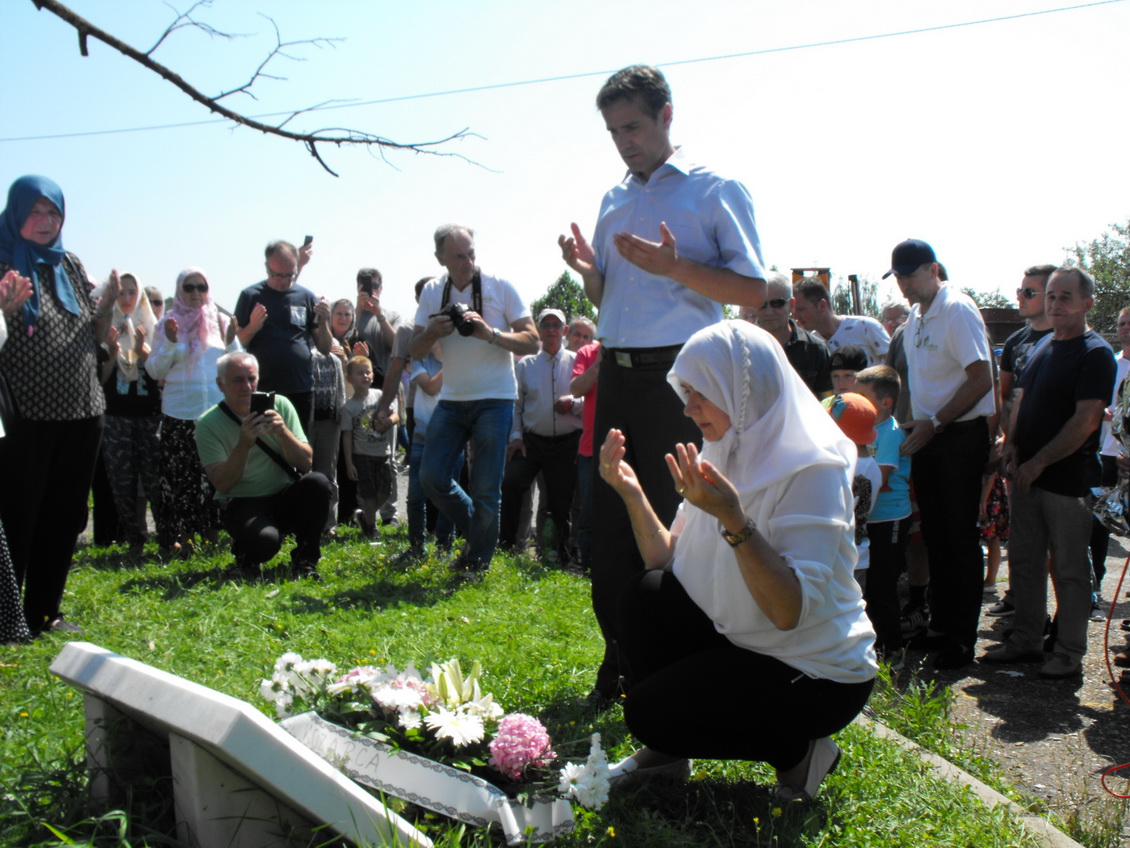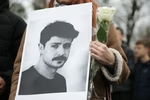
Former concentration camp inmates have gathered in the northwestern town of Prijedor to mark the 26th anniversary of the crimes committed in the wartime Bosnian Serb-run 'Keraterm' concentration camp, where only in 'Room 3', 200 people were murdered in one of the worst crimes of the Bosnian war.
One of the former inmates is Smail Denic, who spent several months in the camp and was then sent to 'Trnopolje', another concentration camp in the area.
"Here, I experienced what I would not wish for anyone, from beatings to withholding water, medicine and food," he said. "It is difficult to remember all of this, and I come here every year and will keep coming as long as I can, as there is less and less of us."
The crowd attending the annual gathering is decreasing, he said, adding that neither the State, nor the governments of the two semi-autonomous entities comprising it have helped former concentration camp inmates, "at least to make better treatment for us possible".
Another former inmate, Adem Crljenkovic, also comes to the commemoration every year, although he now lives in Australia.
"I had spent a night in Keraterm and already the next day I was transported to the 'Omarska' concentration camp along with 26 others," Crljenkovic said, adding that from Omarska he then was sent to the Manjaca camp.
"In Omarska they broke 11 of my ribs, the collarbone, the nose, and God knows how many injuries I had," he said.
Crljenkovic said that his brother was killed in the notorious Room 3 along with another 75 people from the village of Rakovica on July 24, 1992.
After foreign journalists managed to enter Omarska and aired footage and photos showing starved inmates, Bosnian Serbs were forces to close the camps and release the people in them.
Crljenkovic was released on December 18 when he was put on a convoy that took him to neighboring Croatia.
Nine people have until now been sentenced for the Keraterm atrocities. Seven were tried by the Hague-based International Criminal Tribunal for the Former Yugoslavia, and another two by the Court of Bosnia and Herzegovina.
"In the coming period we expect new arrests of the direct executors of the killings, but also of those who gave them the orders," said the head of the association of concentration camp inmates in the Banja Luka region.
Those who were sentenced were mostly former commanders of concentration camps and shift commanders, he said.
The remains of the victims in 'Keraterm' were exhumed from the Stari Kevljani, Jakarina Kosa and Tomasica mass graves.
This is by now the only such camp in Bosnia that has a memorial plaque.
More than 3,000 people have passed through Keraterm between May and August 1992, and 371 of them did not survive it. Among them are 200 who were killed in Room 3 in the night between July 23 and 24 that year.
There have been 56 rulings against the perpetrators of the crimes committed in Prijedor in general, and many trials are still ongoing.
Kakvo je tvoje mišljenje o ovome?
Učestvuj u diskusiji ili pročitaj komentare





 Srbija
Srbija
 Hrvatska
Hrvatska
 Slovenija
Slovenija



























































